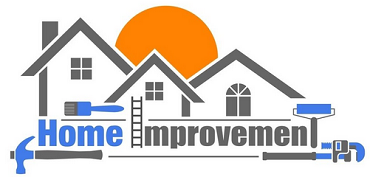DSCR Loans: Understanding Debt Service Coverage Ratio Loans

Real estate investors are always searching for financing solutions that prioritize property performance over personal income. One of the most effective tools available today is DSCR loans, also known as Debt Service Coverage Ratio loans. These financing options evaluate a property’s ability to generate enough rental income to cover its debt obligations, making them especially appealing to investors with multiple properties, self-employment income, or complex financial profiles.
What Is a DSCR Loan?
A DSCR loan is a type of real estate financing in which the primary underwriting factor is the Debt Service Coverage Ratio (DSCR). This ratio measures how much cash flow a property produces relative to its debt payments.
Formula:
DSCR=NetOperatingIncome(NOI)DebtPaymentsDSCR = \frac{Net Operating Income (NOI)}{Debt Payments}DSCR=DebtPaymentsNetOperatingIncome(NOI)
For example, if a property earns $120,000 in net operating income annually and has $100,000 in annual loan payments, the DSCR is 1.20. A DSCR greater than 1.0 shows the property generates enough income to cover its debt, while anything below 1.0 indicates negative cash flow.
Why DSCR Loans Are Popular Among Investors
Traditional mortgages often depend on personal income verification through W-2s, tax returns, and credit history. This can be restrictive for investors who are self-employed, have non-traditional income, or own multiple rental properties. DSCR loans shift the focus from personal income to property income, creating a more flexible path to financing.
Key reasons investors choose DSCR loans include:
- Simplified approval process since income documents are minimal.
- Scalability, allowing investors to grow portfolios without personal debt-to-income (DTI) limitations.
- Flexibility in ownership structures, such as LLCs or corporations.
- Faster underwriting, since lenders evaluate rental income rather than full financial histories.
Advantages of DSCR Loans
- No Personal Income Verification
Borrowers don’t need to show W-2s, tax returns, or pay stubs.
- Property-Centric Qualification
Approval depends on how well the property performs, not the borrower’s financial details.
- Portfolio Growth
Investors can finance multiple properties since personal DTI isn’t the limiting factor.
- Flexible Terms
Many DSCR loan programs offer competitive interest rates, long amortization schedules, and the ability to finance short-term rentals.
- Entity Ownership
Investors can purchase properties under LLCs, protecting personal assets and simplifying tax management.
Eligibility Criteria
Although DSCR loans are more flexible than traditional mortgages, certain requirements still apply:
- Minimum DSCR Ratio: Most lenders prefer at least 1.20, though some may go as low as 1.0.
- Down Payment: Typically ranges between 20% and 25%.
- Credit Score: While personal income isn’t verified, lenders often require a minimum credit score of 660 or higher.
- Property Type: These loans are designed for income-producing assets such as single-family rentals, multi-family homes, or vacation rentals.
- Geographic Considerations: Some lenders may limit loans based on property market risks.
Example of How a DSCR Loan Works
Suppose an investor purchases a triplex that generates $7,500 in gross rent monthly. After deducting expenses, the net operating income is $72,000 per year. If annual mortgage payments total $58,000, the DSCR is:
DSCR=72,00058,000=1.24DSCR = \frac{72,000}{58,000} = 1.24DSCR=58,00072,000=1.24
Since the ratio is greater than 1.20, this property meets most lender requirements for financing approval.
How DSCR Loans Differ From Traditional Mortgages
| Feature | Traditional Mortgage | DSCR Loan |
| Qualification | Personal income & DTI | Property rental income |
| Documentation | Tax returns, W-2s, pay stubs | Lease agreements, NOI |
| Best For | Homebuyers & primary residences | Real estate investors |
| Ownership Structure | Personal name | LLCs or entities |
| Approval Speed | Often slower | Faster, streamlined |
Risks and Considerations
While DSCR loans offer flexibility, investors should also consider potential risks:
- Higher Interest Rates: DSCR loans may carry slightly higher rates compared to conventional mortgages.
- Dependence on Property Performance: A vacancy or market downturn could impact the ability to meet debt obligations.
- Minimum DSCR Requirements: Falling below lender thresholds may limit financing options.
Who Should Use DSCR Loans?
DSCR loans are ideal for:
- Investors with multiple rental properties looking to expand portfolios.
- Self-employed borrowers without traditional income documentation.
- Short-term rental operators who want to leverage Airbnb or vacation income.
- Entrepreneurs seeking flexible financing options without personal DTI restrictions.
Final Thoughts
Debt Service Coverage Ratio loans empower investors to grow their real estate portfolios by qualifying based on property performance rather than personal income. With advantages like streamlined approval, scalability, and ownership flexibility, DSCR loans have become one of the most popular financing tools in today’s investment market.





